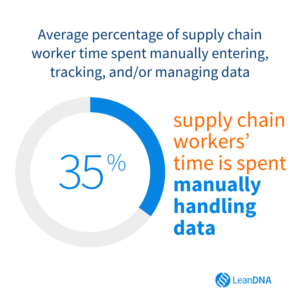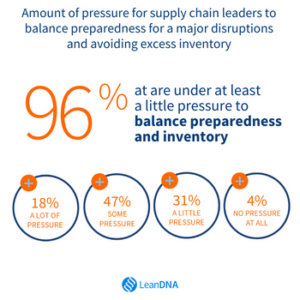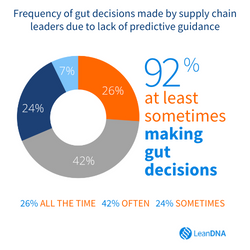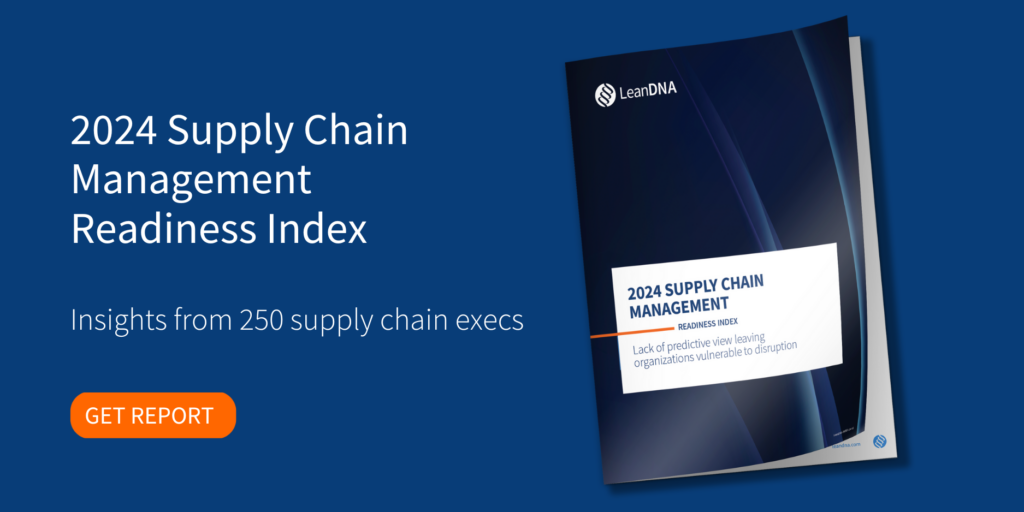Global manufacturers have been bracing for the new era of supply chain management in recent years, as macroeconomic dynamics and external disruptions have forced the supply chain to face increasing challenges.
To uncover the current state of supply chain readiness, LeanDNA commissioned top market research firm Wakefield to conduct a study among 250 Supply Chain, Planning and Inventory Executives with specific goals of: understanding supply chain executives' perceptions of macroeconomic conditions and perceived preparedness for future supply chain disruptions, examining how supply chain executives’ tech stacks help or hinder future preparedness, and exploring what and how supply chain executives are leveraging to guide and predict important decision making needs.
The 2024 Supply Chain Readiness Index is rich with learnings and implications for today’s supply chain leaders eager to prioritize more effective strategies for proactive supply chain management. Top findings and takeaways include:
In a new era of supply chain management, executives are focusing on resiliency as they know the next external disruption is inevitable.
- An overwhelming 87% cite resiliency as a high or even top priority in 2024
- 92% work at organizations that report having already at least somewhat increased investments in preparedness for major disruptions to be more resilient
- Despite tech stack advancements, supply chain executives estimate supply chain workers spend an average of 35% of their time manually handling data

But future-focused readiness and operating efficiency are often put at odds against each other internally making resiliency difficult to achieve.
- Nearly all supply chain executives (96%) say their organization is under at least a little pressure to balance preparedness for a major disruption and avoiding excess inventory

Despite acknowledging the need to be prepared for disruptions and being concerned enough to take some level of action to do so, organizations are still shockingly ill prepared to have a view of supply and demand beyond real time.
- 53% have already made major changes to their tech stack and 33% have done complete overhauls (33%)
- However, even with this increased capability, most (76%) still lack a predictive view of supply and demand

A lack of predictive guidance is leading to an over-reliance on subjective decision-making. Tech stack investments haven’t gone far enough to develop actionable insights or root out manual handling of data.
- More than 4 in 5 (82%) agree that efforts to generate real-time data that do not provide actionable insights for decision-making is a waste of time and energy
- With a lack of predictive view of supply and demand, more than 9 in 10 executives (92%) are relying on their gut to make decisions at least some of the time

The full-length 2024 Supply Chain Readiness Index with the complete survey results and findings are available here.
If you’d like to learn more about LeanDNA, click here to schedule a demo.




